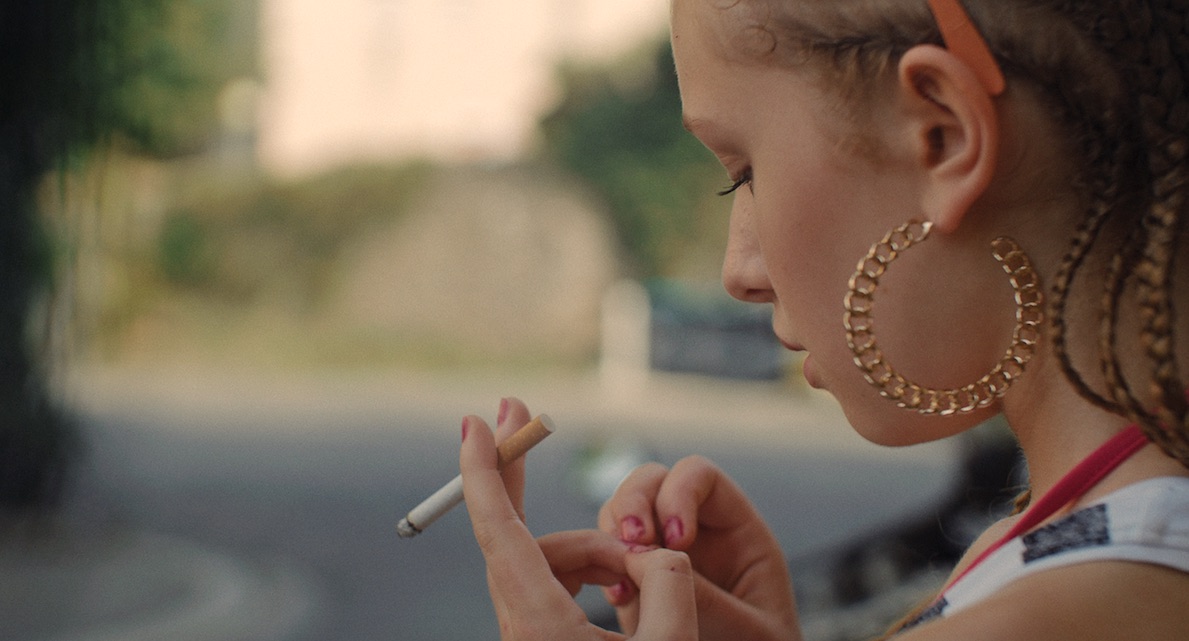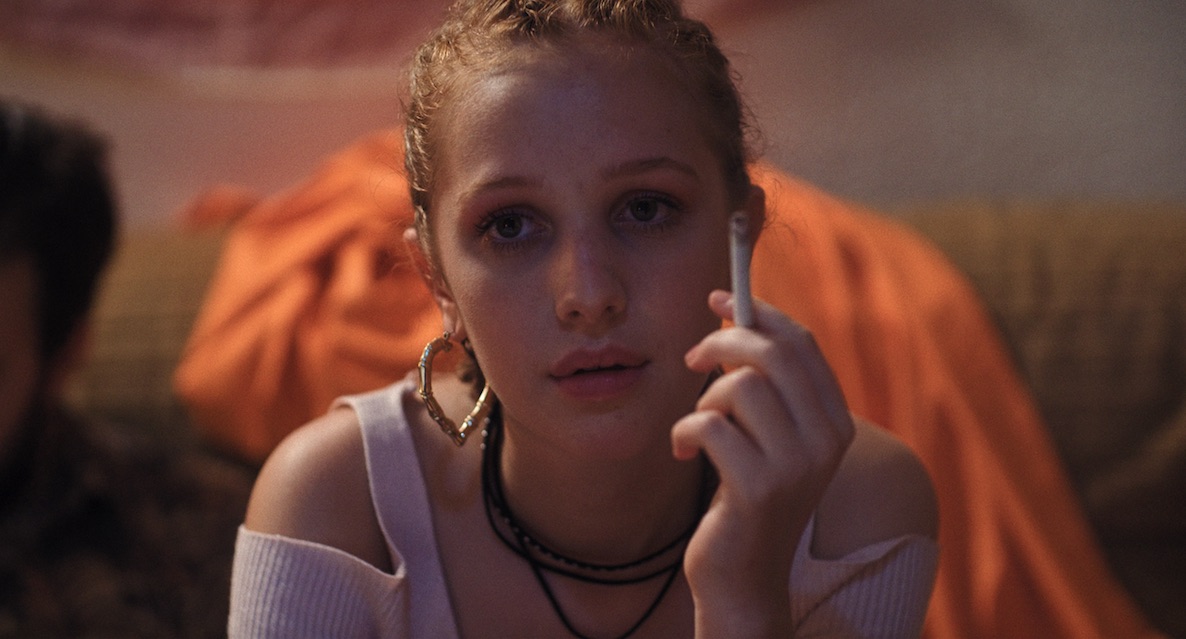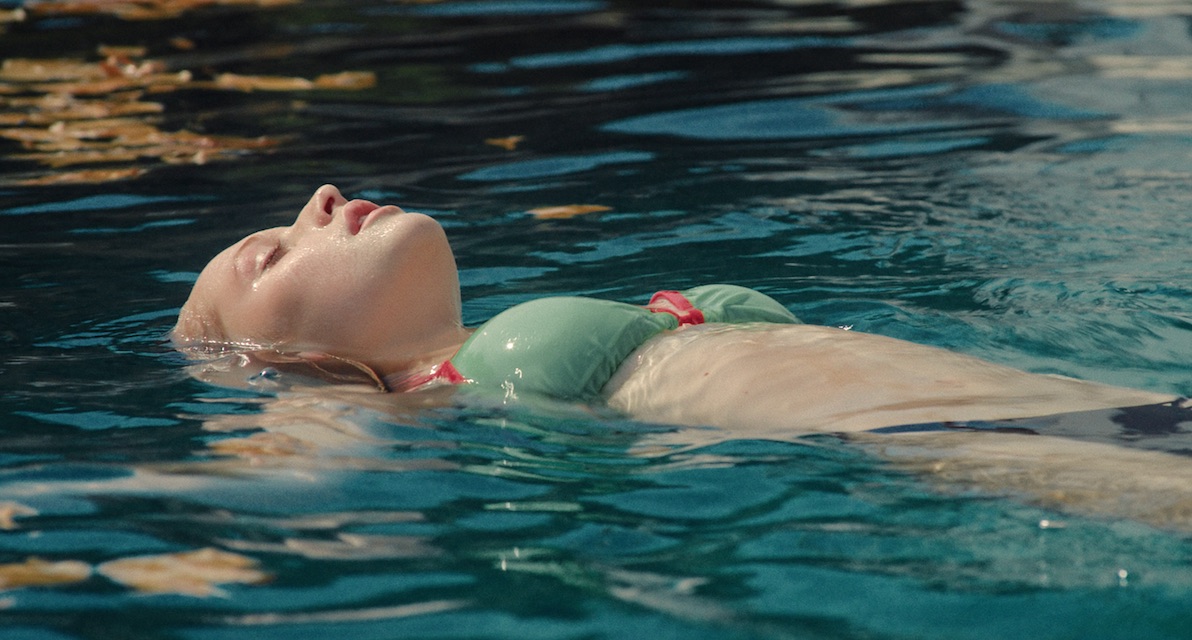A young girl at the doorway between childhood and adulthood faces the same situation her mother faced 16 years ago. When Anna’s sexual exploration results in pregnancy, she has to decide if she will follow in her mother’s footsteps or take a different path. Matriochkas, a short film by director Berangere Mc Neese, examines this complex crossroads by bringing us into Anna’s world. In a real life setting with dirty sneakers, secret rendezvous and angry bus drivers, this film takes audiences on a path through coming-of-age themes, gender roles, society’s judgment of young mothers and sexuality in general, and trust between adults and teens. Through the characters we see ourselves, whether in the teen girl, the mother who hasn’t quite grown up, or the man who chooses to show up.
Anyone who has been a child entering adulthood, or had a complicated relationship with their mother will find this thoughtful piece engaging. So that means everyone. The film is in French; I watched it with English subtitles. I was blown away by how similar these basic human experiences are from country to country. If you like slice of life or family drama, exploring the issues surrounding women’s sexuality and rights, or just enjoy a good story about authentic characters, this film will deliver. Audiences around the world have been diving into the complexities of this real, raw and relatable short film.
I had the pleasure of interviewing director Berangere McNeese. Our conversation is below.

Melissa Lyman: Thank you for talking with me today. I really enjoyed the film; it was unique.
Berangere McNeese: Oh, thank you, how nice. I am excited the film is making its way to the States. I’m Belgian and American, so I'm glad to see it’s coming out over there.
ML: What inspired you to make this film?
BM: In my work I focus a lot on mother daughter relationships. I wanted to explore this relationship between a mother who had her daughter very young, and the good parts of that. It was interesting to think about the daughter making a different choice from what her mother did, even if it called into question her own existence. It’s been rewarding to be part of the conversation about these taboo topics. I’m glad we are starting to have these conversations. It was also important to me to have characters who are multi-layered. The mother loves her daughter very much. Audiences have been hard on the mother character but I really like her. She does her best, and she loves her daughter even if she can’t see her daughter’s point of view.
ML: What were some of the challenges?
BM: Every film is a challenge, of course. With this one it was really focusing on not judging the characters. Another interesting element was working with first time actor Heloise Volle who played Anna. It was her first audition, first part. She was only 14 when she auditioned. She came to audition in Paris from her small town. I started acting when I was young so I really related to her. I feel really lucky to have found her. I wanted to create a safe space for her to experiment and find out how far she could go. It was great to watch her blossom in front of the camera. She found out she is good, and now she has a role in a series. She’s 17 and living her best life. It’s cool to see.
ML: What was the best part?
BM: Well, the film came out 2 years ago, and it’s been rewarding that it’s still traveling. Of course with covid I haven’t been able to travel and present it, but it has still been making its way around the world. I have loved seeing how it resonates with people from all over; audiences in Latin America, in France. When we were originally getting funding, the film was categorized as a teen pregnancy film, as a women’s film, and that was annoying to me. It’s about much more than that, and I’ve loved seeing audiences relate.
ML: I noticed the opening and closing images of the boys playing, first with the shopping cart, then at the bus stop, when Anna has just faced a major life event. I wondered if you were commenting on different gender roles?
BM: Yeah, I mostly wanted to capture that end of summer mood and show teenagers being teenagers. They are still children. They need people to trust. Teenage girls are going to get pregnant. That’s why I think Nelson’s character is so important. The film is not only for and about women; in the relationship between Anna and Nelson, we don’t know at first how it will go. How do they see each other? How will they interact? He has to make a choice about how to engage with her. When you are 16 you don’t understand and might seduce older people; it’s about his choice to be someone she can trust.
ML: How can people see the film?
BM: I’m excited that the film is coming to the States. It will be available online as soon as possible. (Link to follow; will update when available.)

Follow Bernagere and see more of her work on instagram.
Watch the trailer for Matriochkas here.
